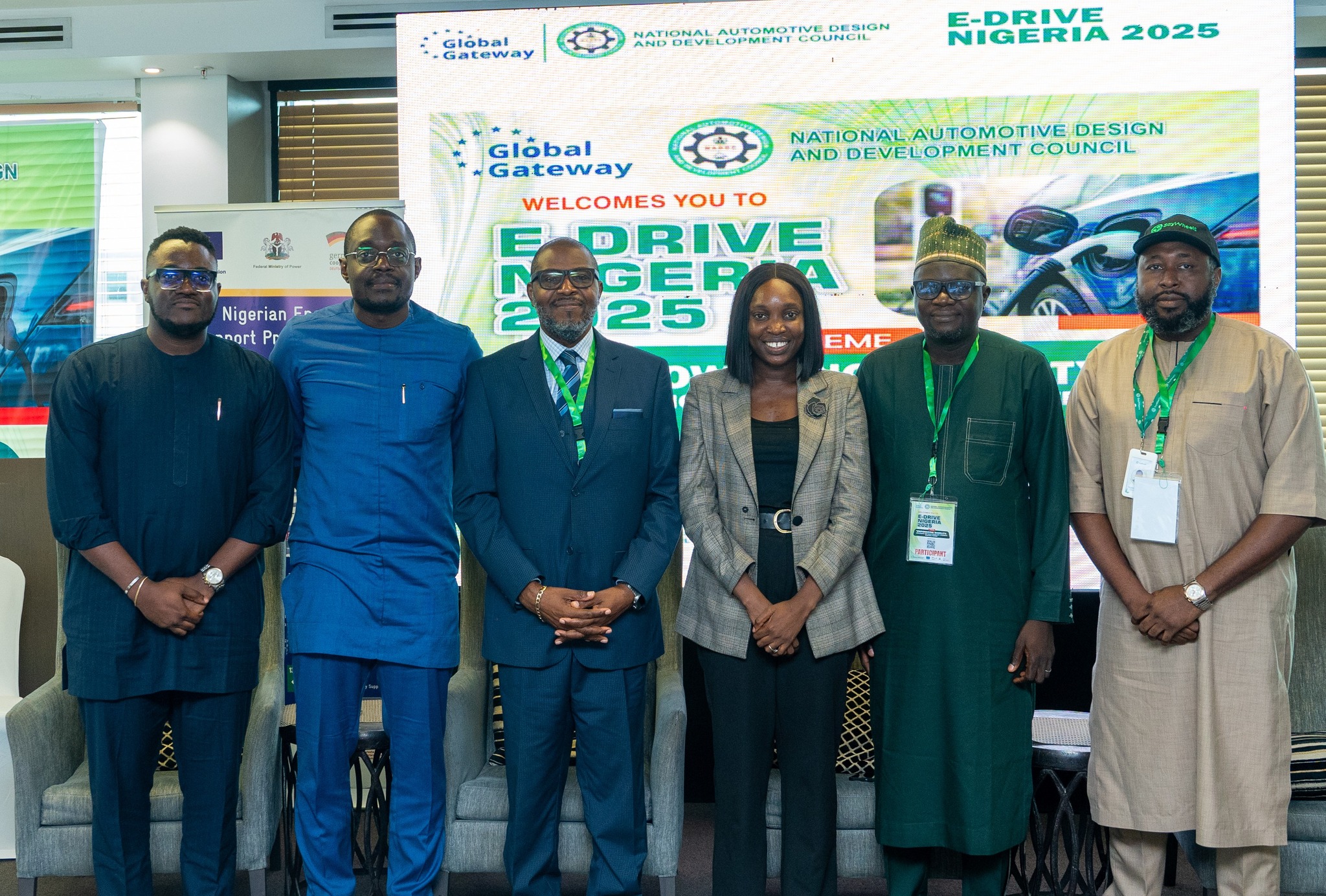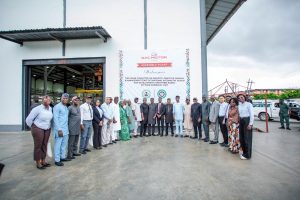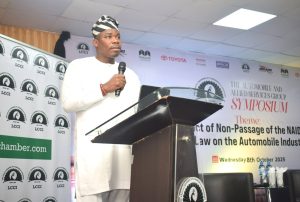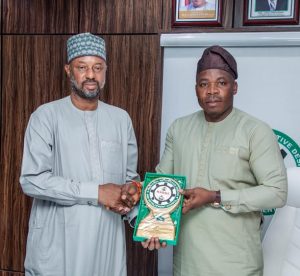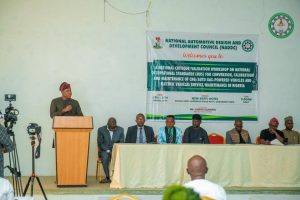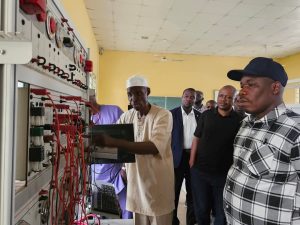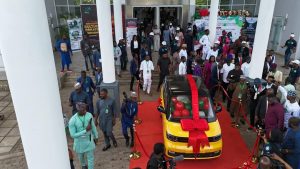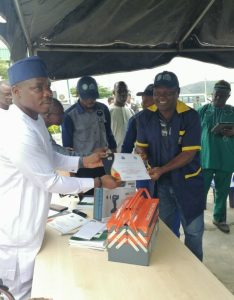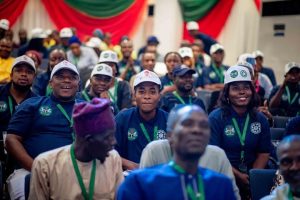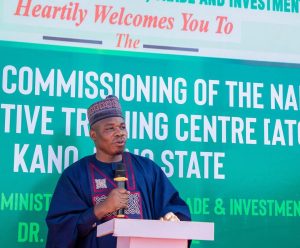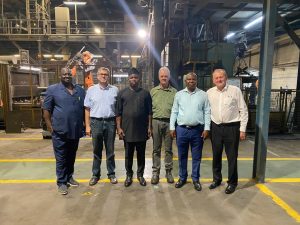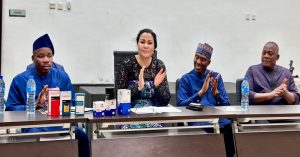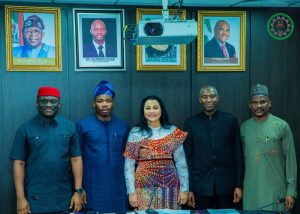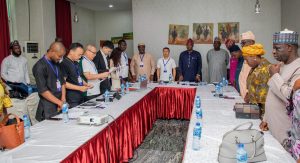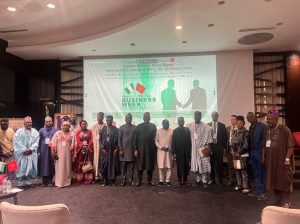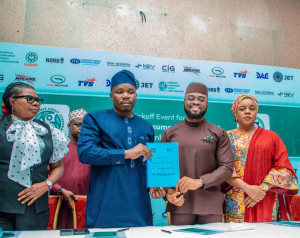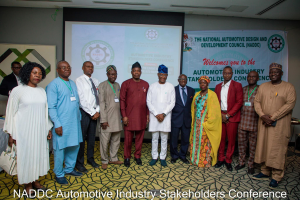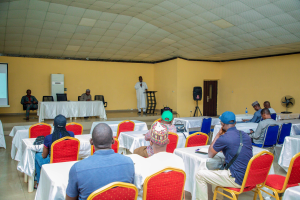On 22nd October, 2025, the Director-General/CEO of the National Automotive Design and Development Council (NADDC), Chief (Otunba) Oluwemimo Joseph Osanipin, ably represented by the Director of Vehicle Electrification, Engineer Abdullahi Ayinde, reaffirmed the Federal Government’s commitment to advancing electric mobility in Nigeria.
Speaking at the collaborative summit, the Director General described the event as a major milestone in transforming Nigeria’s mobility landscape, stating that the partnership reflects a shared vision to transition from fossil fuel dependence to clean, efficient and sustainable electric transportation, in line with the summit’s theme: “Empowering Mobility—Unlocking the Value Chain for Nigeria’s Electric Future.”
He highlighted key NADDC initiatives under the Nigerian Automotive Industry Development Plan (2023–2033), including the development of a National Electric Vehicle Policy, establishment of solar-powered EV charging stations, collaboration on EV safety standards and technical training, and support for local vehicle assembly by firms such as Innoson, Jet Motors, and Hyundai Nigeria.
Representing GIZ, Chimeze Nwosu, Advisor Sustainable Energy Access conveyed his remarks on behalf of the Nigeria Energy Support Programme (NESP), a technical assistance programme co-funded by the European Union and the German Government and implemented by GIZ in collaboration with the Federal Ministry of Power.
“I bring you warm greetings on behalf of the Nigeria Energy Support Programme (NESP). Our collective efforts are focused on ensuring that Nigeria’s clean energy and e-mobility transition is not only effective but inclusive, sustainable, and locally driven.” he stated.
The Nigeria Energy Support Programme (NESP), in collaboration with the Federal Ministry of Power, reiterated its commitment to supporting Nigeria’s clean energy transition and sustainable mobility agenda. NESP emphasized that Nigeria’s transport transformation is not only about replacing petrol engines with batteries but about building a domestic value chain that integrates clean energy, innovation, local manufacturing, and job creation.
NESP commended NADDC for its leadership in strengthening policy frameworks, technical standards, and investment readiness for electric mobility in Nigeria.
The Participants at the programme highlighted that the success of e-mobility depends on reliable, renewable and affordable power sources. By linking electric transport with solar mini-grids and distributed energy systems, Nigeria can sustainably power its transport sector while fostering grid stability, industrial growth and green enterprise development.
The stakeholders also expressed optimism that continued collaboration among government, private sector, and development partners will accelerate Nigeria’s transition to a cleaner, smarter, and more sustainable transportation future.
#NADDC#madeinnigeriavehicle#innovation#futureofmobility#electricvehicles

